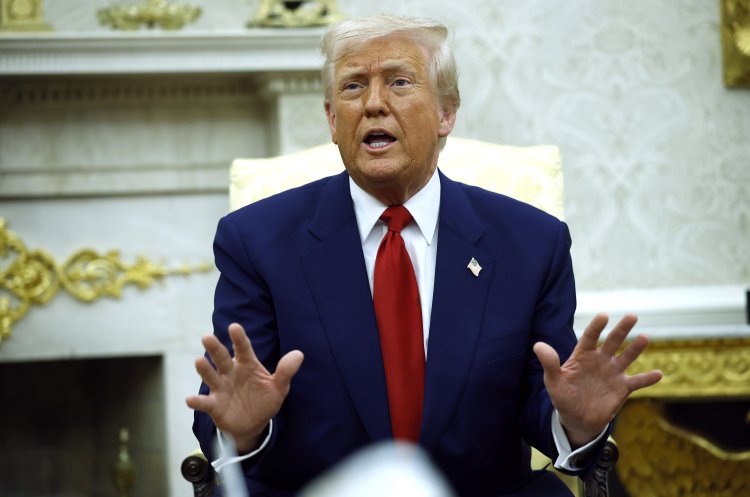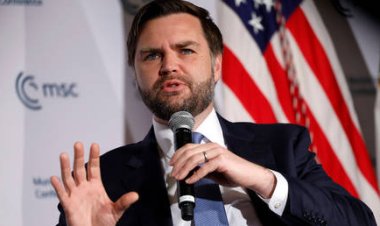Nations Claim White House Has Not Answered Their Queries on Tariff Discussions: ‘We are all waiting for a reply.’
The absence of engagement indicates that the White House remains distant from achieving meaningful trade agreements before the midnight deadline for increased global tariffs to take effect.

An official from the Philippines has stated that the country is still waiting for a response to its request for a meeting. The United Kingdom proposed a framework for a trade deal to the White House but was unable to prevent the impending tariff increases. Another foreign diplomat noted that their government had been reaching out to various aides within Trump's administration at all levels, yet many were either unresponsive or not inclined to take action beyond listening.
Additionally, Trump’s officials have not clearly defined the concessions the administration is looking for to facilitate a negotiated resolution.
This situation indicates that despite the administration's attempts to reassure financial markets, business leaders, and fellow Republicans about their strategy concerning the market-altering tariffs, the White House is still far from securing any meaningful trade agreements with key foreign partners. Achieving rapid progress will be even more challenging now that the administration is attempting to negotiate bilateral agreements with nearly 100 countries simultaneously, all while pursuing a vague set of objectives.
"I'm not sure … how receptive the Commerce Department, the [U.S. trade representative], is in getting our Cabinet secretaries to meet with counterparts. Many of us have already written to them asking for meetings," remarked the Philippine official. "We are all waiting for the reply,” they added, referring to representatives from several Southeast Asian nations. Like other foreign officials mentioned in this article, the source was granted anonymity to discuss sensitive diplomatic matters.
Another foreign diplomat concurred that none of Trump's top officials have "a mandate to negotiate," and indicated that those at lower levels are even less empowered or informed about the administration's plans. The diplomat highlighted that Vietnam and Israel had both offered to reduce tariffs but received no concessions in return.
"Even if you have a meeting, apart from a nice tweet, you don't get anything," they stated.
Since the announcement of his tariff plan last week, the White House has emphasized the number of foreign leaders seeking to negotiate—a point they have made more frequently as the stock market has fallen.
"The president will talk to any country that picks up the phone to call and I can tell you, the phones have been ringing off the hook wanting to talk to this administration,” White House Press Secretary Karoline Leavitt stated during a press conference on Tuesday. She mentioned that foreign leaders are eager to "fly to Washington tonight."
However, managing so many conversations simultaneously poses a significant challenge for the administration's limited trade and economic staff.
“There definitely will be bandwidth issues, no question about it, if they try to do it all at once,” said Bill Reinsch, a former Commerce Department official from the Clinton era now with the Center for Strategic and International Studies. “But I think what happens is prioritization…. We’ll see who lines up next – I think it’s sort of whoever gets their foot in the door."
In the meantime, some countries may have to consider retaliatory measures instead, according to the foreign diplomat who has attempted to contact Trump officials throughout the administration. "We still believe that actually having a negotiation would make more sense, but the problem is that they are not negotiating," the diplomat explained.
Trump himself has highlighted his discussions with leaders from Japan and South Korea, as well as an in-person meeting with Israeli Prime Minister Benjamin Netanyahu on Monday. However, the White House has remained vague about whether these talks advanced negotiations or if Trump would contemplate lifting the heightened tariffs on those nations as a result.
Even after Netanyahu expressed Israel's commitment to eliminating its trade deficit with the U.S. and reducing other trade barriers during joint remarks in the Oval Office, Trump responded with indifference: "That’s very nice."
“There are conflicting signals, because some officials will say there's no room for negotiation,” noted another diplomat from a Southeast Asian nation. “And then yet, I heard that some countries are talking … Israel is coming, Japan is coming, and, you know, so I think there must be room.”
This confusion complicates the president’s efforts to stabilize a turbulent week in the markets, which has triggered worries about a potential recession in the U.S.
After weeks of anticipation, Trump declared on April 2—dubbed “Liberation Day” by the White House—that a 10 percent tariff would be imposed on all imports from around the world starting April 5, with increased rates for specific countries identified as unfair trading partners to take effect on Wednesday.
The tariffs for around 60 trading partners range from 10 to 50 percent and are in addition to duties already placed on steel and aluminum, automotive imports, and tariffs imposed on Canada, Mexico, and China due to its role in fentanyl trafficking into the U.S. Trump has also threatened a further 50 percent tariff on China following its retaliation against his initial tariff announcement, which—if implemented—would see tariffs on Chinese goods exceed 100 percent.
The president has emphasized a focus on the trade deficit with foreign nations, asserting that he wishes to decrease it before considering lifting any tariffs. U.S. Trade Representative Jamieson Greer referred to this as trade "reciprocity" during his testimony before the Senate Finance Committee on Tuesday.
“The lack of reciprocity is an important driver of our global trade deficit and with particular countries,” Greer testified. “It is just common sense that the president target trade deficits to get at the non-reciprocal conditions underlying this national emergency.”
Modifying trade barriers, such as taxes and domestic standards for various goods, will be considerably more difficult for foreign governments to address, if they are willing to at all. Many countries have little influence over their trade deficits with the U.S., which are influenced by their economic structures and American consumer behavior.
“I think it’s going to be more complicated than Trump thinks because the minute you get into non-tariff barriers, you’re not just talking about numbers, you’re talking about how countries organize their economies and society,” said Reinsch. He predicted, “If they cut a deal they’ll pick more numbers out of the air and say, ‘It’s going to reduce the deficit by this much.’”
Republican and Democratic senators both questioned Greer regarding this issue on Tuesday. "Do you think a trade deficit is necessarily always bad?" Sen. Ron Johnson asked. "I think the bigger problem is that we don't have enough workers. So are you factoring that into your calculation in terms of what you're actually trying to accomplish here?"
Greer did not provide much clarity on how much the administration expects other countries to reduce their trade deficits, the timeline for achieving this, or the overarching goals of the tariff negotiations.
“It’s going to be country by country,” Greer explained. “There are going to be some countries where they’re not able to address their non-tariff barriers or their tariffs or the deficit fully and there will be others who I think will be able to do that."
One thing that is clear from both the president and senior trade officials is that the concessions proposed by some countries so far have been insufficient to merit relief from tariffs. Cambodia, facing a 49 percent tariff, has suggested cutting duties on 19 categories of goods imported from the U.S., while Thailand is considering increasing imports of U.S. oil and gas to diminish its trade surplus with the U.S.
On Monday, the European Union proposed to eliminate its tariffs on industrial goods in exchange for the U.S. eliminating its comparable tariff rate. When asked in the Oval Office if that was sufficient to mitigate the 20 percent tariff increase the EU is facing starting Wednesday, Trump replied, “No, it’s not.”
White House senior adviser Peter Navarro was equally dismissive on Monday of Vietnam's proposal to eliminate all tariffs on U.S. goods in exchange for reducing the 46 percent duty that will take effect soon. “Means nothing to us because it’s the non-tariff cheating that matters,” Navarro stated in an interview on CNBC.
Some countries are working on longer-term strategies to lessen the impact of tariffs. The Colombian government is in discussions with private sector leaders about diversifying their foreign markets, in addition to planning a roadmap for engagement with Washington, according to a Colombian official.
“They are still weighing what to do,” remarked a Latin American official closely monitoring communications with the Trump administration. "They postpone, and then they announce, again and again. I think people are just waiting to see what happens."
In the U.K., Prime Minister Keir Starmer’s administration has made it clear that it aims to reach an agreement with the White House and has even offered to review its online safety regulations and tech taxes in the negotiation process. However, ministers do not expect Trump to relent in the near term.
Speaking in the U.K. Parliament on Tuesday, Starmer signaled that he does not foresee a significant breakthrough in the coming days or weeks: “I don’t think what’s happened in the last few days is a temporary passing phase, I think it’s a changing world order."
Camille Lefevre for TROIB News
Find more stories on Business, Economy and Finance in TROIB business












